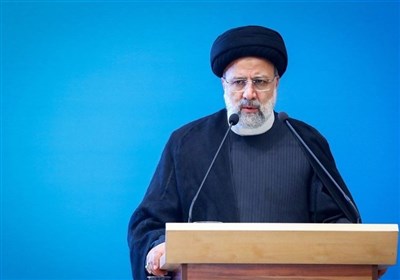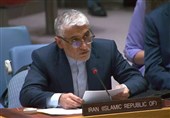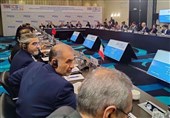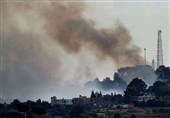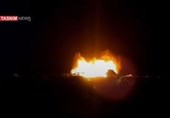Member of European Parliament: Democracy Cannot Be Spread at Gun Point
TEHRAN (Tasnim) – The Irish Member of the European Parliament Clare Daly said the wider tragedy for Afghanistan began longer before the US expulsion in August, underlining that democracy cannot be spread at the point of a gun.
The Foundation of Dialogue and Solidarity of United Nations (FODASUN), is a non-governmental organization based in Iran which is dedicated to the development of peace, human rights, tolerance and friendship between nations. On September 21, 2021, FODASUN hosted a webinar on the "Peace Crisis in Afghanistan" with various major international figures to commemorate the International Day of Peace.
During the webinar, Clare Daly, an Irish Member of the European Parliament mentioned an acute form of hysteria from mainstream politicians and the establishment media that has been seen for the last few weeks, in which as she put it, “a sudden, intense, opportunistic concern for the wellbeing of certain Afghans” have been discovered by the media, compared to an almost total lack of concern for Afghans over the last twenty years.
“We have heard them proclaim that the US withdrawal was a betrayal of Afghanistan and mourn for the loss of Western prestige – as if the spectacle of the West being defeated in Afghanistan was somehow harder on their feelings than twenty years of military occupation has been for Afghans to bear,” Daly said.
MEP Delegation for relations with Afghanistan said that the wider tragedy for Afghanistan did not begin in August when the US forces withdrew from the country, adding that the Taliban have always been destined for power when this occupation ended.
“No serious follower of events in the country expected anything less. Their takeover should be viewed as a symptom of the American occupation, not its alternative,” she added.
At the end of her remarks, Daly said that the Afghanistan War was an abomination from the beginning to the end, which has never aimed to bringing peace or progress to Afghans – those were mere excuses.
“Democracy cannot be spread at the point of a gun. It was an escapade, a calamity, and it went on for so long, not in order to stay the course but because a lot of money was involved, and a lot of people – Afghan elites and Westerners – got very comfortable with it,” she continued, adding “Taliban rule is part of their legacy. They are two sides of the same coin. Although Afghans now face the challenge of living with that legacy, there is no role whatsoever for Western military power in resolving it. That process will take decades, even centuries, and it will be a painful process, but it has to be carried out by Afghans and for Afghans.”
She also mention that is time for the Western war machine to be brought to a halt, for a period of deep reflection and self-examination, a recognition that the last twenty years were a dire mistake. It is time for humility at last, an end to the wars and for a new and genuine commitment to building peace and justice in the world.
Also at the session, Patrick Wintour, Journalist and the diplomatic editor of The Guardian, said, “It's important to keep the dialogue as much as possible. Some of the important events still are happening in Afghanistan. And it would be a great shame if the world just moves to another subject and forget about Afghanistan. with American sanctions, it's very difficult for some Aid agencies to help legally inside Afghanistan."
"How we should deal with the Taliban is a very complicated issue and not have been resolved yet. China potential is ready to invest in Afghanistan but they have specific concerns around extremism.”
Stressing the need for forming an inclusive government in Afghanistan Wintour said, “A lot of countries are not happy with the composition of the new temporarily Afghan government. It's come from one faction, one ethnicity and one gender so it is the exact opposite of what people have been hoping for. There is so much skepticism that the government is going to be changed."
"The difficulty for the west is if the Taliban going to violate human rights and expand terrorism what should they do. Biden is in a power struggle with China and that might be also involved in reducing the commitments in as Saudi Arabia and UAE.”
The diplomatic editor of The Guardia after mentioning that "we wanted democracy in a country that's doesn't have a long history of it", ended his discussion by answering a question on the conditions for obtaining Taliban recognition from countries around the world.
Stefano Vernole, deputy director of Eurasia Journal and Coordinator of Eurasia Mediterranean Study Center said at the webinar that the situation in Afghanistan is very strange and not easy to resolve, adding “the only problem is if Taliban will be able to build a government that represents the ethnic and religious component of the country. Because Afghanistan is a country very difficult to control because it is made up of mountain ranges and its population is far from homogeneous from a technical point of view.”
At the end of the meeting, Ferdows Hakeem, a Political Science Researcher from Selçuk University of Turkey presented an analysis of the current situation in Afghanistan and urged the world and the International Community as well as the United Nations not to rush to recognize the Taliban and Islamic Emirate, accusing that the Taliban doesn't respect the right of women and human rights.

